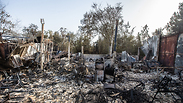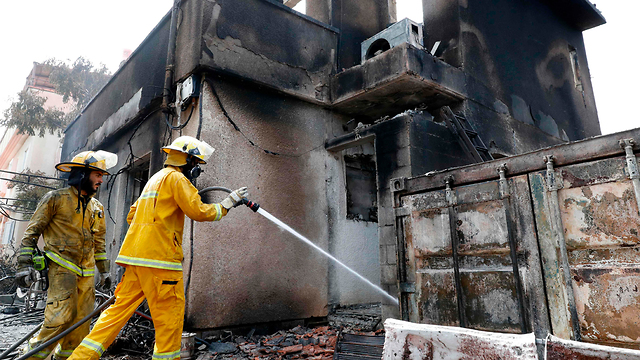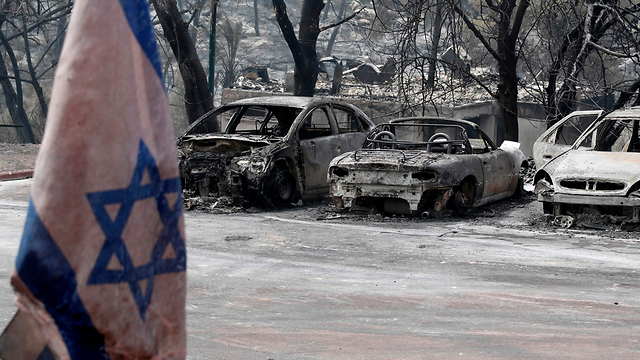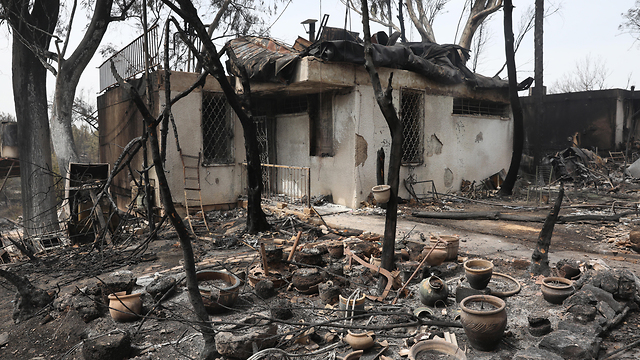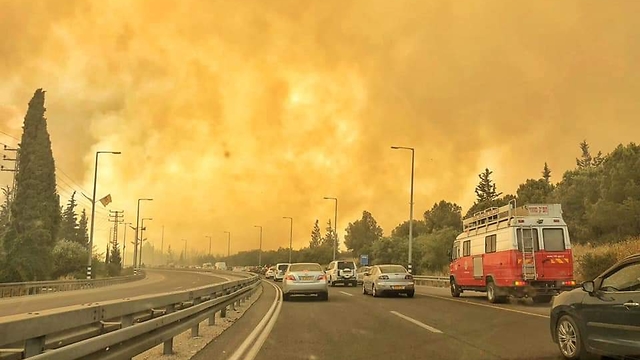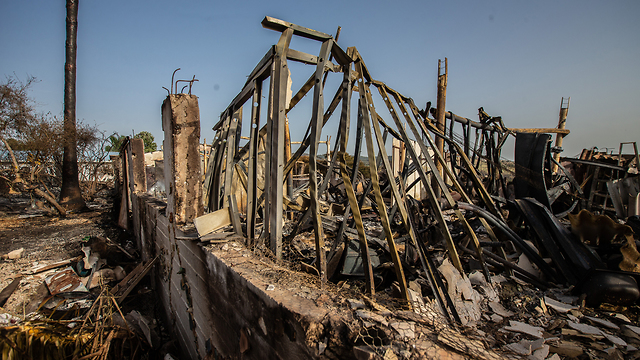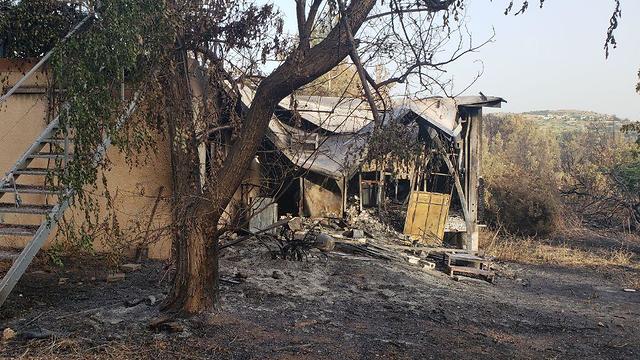Some 16 people suffered smoke inhalation and 13 others had light burns, including some of the 1,000 firefighters - from National Fire and Rescue Authority - who battled at least 1,023 conflagrations across the country.
In addition, 300 volunteers also participated in the operation, dubbed “Hot Fire” in the scorching temperatures that sometimes reached 45 degrees celsius.
Although damage to the property was great - with some 50 houses destroyed by the blaze - there were no reports of casualties.
The fires also caused a wide-scale damage to the environment with some 7,940 dunams (two acres) of land, belonging to the Nature and Parks Authority as well as Keren Kayemeth LeIsrael - Jewish National Fund, scorched by the massive flames.
"The damage is immense not only to the forest but also to the wildlife,” said Gilad Mestai, director of the KKL-JNF for the Coastal Plain district. “Very large forested areas, the green lung of the Dan region, have been burned down," he said.
The residents of the communities that were damaged by the fire, have so far not been allowed to return to the homes, which they were forced to flee. At least 40 out of the 50 houses that were damaged by the fire are located in the religious moshav of Mevo Modi'im in central Israel.
"Although this disaster has befallen us, Shabbat is sweet and gives us life" said Alon Tieger, chairman of the association that runs the moshav. “The way people of Israel opened their hearts to us, brought me to tears, and I did not cry when my house was burned."
The remaining 10 houses that were damaged by the fire are located in Kibbutz Harel - just outside Jerusalem - with five of the homes being burned down to the ground.
Ofir Alkalay, a kibbutz resident whose house was heavily damaged by the blaze, said his home - although still standing - is filled with smoke and various toxic substances.
“My house has been wrecked,” he said. “One of my children was sleeping inside the house when the fire started. My two children - aged five and ten - are traumatized … This is the kind of thing that greatly undermines the feeling of security.
"Most of our kibbutz has been burned down, some families lost their homes … all of our farmland has been damaged,” Alkalay added. “Since the fires broke out we haven’t been able to come back to our homes and we won’t be allowed to enter the kibbutz for at least another week due to heavy air pollution in the area.”
